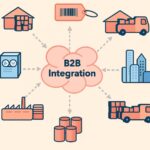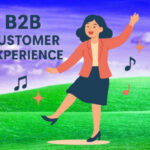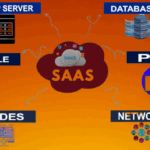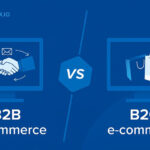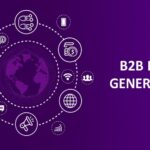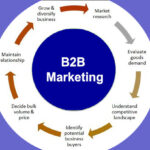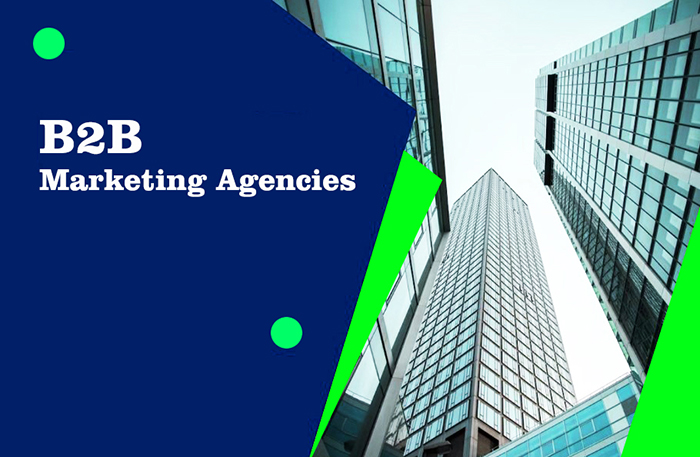
B2B Marketing Agencies: Driving Growth in the Modern Business Ecosystem
In the fast-paced world of digital transformation, businesses are no longer just selling to consumers — they are selling to other businesses. This has created a complex, competitive, and data-driven environment where traditional marketing strategies no longer suffice. Enter B2B marketing agencies — specialized firms that bridge the gap between business strategy, technology, and customer engagement. These agencies help companies build authority, generate qualified leads, and establish lasting business relationships that drive long-term growth.
This article explores what B2B marketing agencies are, how they operate, the strategies they employ, and why they have become essential players in the modern business ecosystem.
1. What Are B2B Marketing Agencies?
A B2B marketing agency (Business-to-Business marketing agency) is an organization that helps companies promote their products or services to other businesses rather than individual consumers. Unlike B2C (Business-to-Consumer) marketing, which focuses on emotional triggers and mass appeal, B2B marketing is centered on rational decision-making, long sales cycles, and relationship building.
B2B agencies often work with clients in industries such as software, manufacturing, logistics, finance, technology, or healthcare — where deals are complex, high-value, and often involve multiple decision-makers. Their goal is to craft strategies that align with the client’s business objectives, support sales teams, and maximize ROI through targeted marketing efforts.
2. The Role of B2B Marketing Agencies in Modern Business
The evolution of digital marketing has dramatically transformed how businesses interact with each other. Gone are the days when trade shows, cold calls, and print ads were the primary channels for generating leads. Today, the digital landscape demands precision, personalization, and measurable outcomes.
B2B marketing agencies play a crucial role in this shift by providing expertise in:
-
Data-driven strategy: Understanding complex buyer personas and using analytics to predict purchasing behavior.
-
Content creation: Producing white papers, case studies, blogs, and videos that educate rather than just advertise.
-
Brand positioning: Helping businesses stand out in crowded markets through consistent messaging and visual identity.
-
Digital performance: Managing campaigns across SEO, PPC, social media, and email automation for lead generation and nurturing.
Essentially, these agencies serve as an outsourced marketing department — combining strategic insight, creative execution, and technical know-how.
3. Understanding the B2B Buyer Journey
To appreciate what makes B2B marketing agencies unique, it’s important to understand the B2B buyer journey. Unlike consumers who might make quick decisions based on impulse, B2B buyers go through a deliberate, multi-stage process:
-
Awareness: The buyer realizes they have a problem or opportunity.
-
Consideration: They begin researching potential solutions and evaluating providers.
-
Decision: After extensive evaluation, they choose a vendor or partner.
-
Retention: The relationship continues post-sale through service, support, and potential upselling.
A B2B marketing agency maps every campaign to this journey. From SEO-optimized educational content in the awareness phase to personalized demos and case studies in the decision phase, the agency ensures that marketing supports every step of the process.
4. Core Services Offered by B2B Marketing Agencies
While services vary from one agency to another, most B2B marketing firms provide a comprehensive suite of offerings that combine strategy, creativity, and analytics. Below are the most common and impactful services.
a. Brand Strategy and Positioning
Agencies begin by defining a clear brand strategy — who the company is, what it stands for, and why clients should trust it. This involves identifying unique value propositions, tone of voice, and key differentiators in the market.
b. Content Marketing
Content is the foundation of B2B success. Agencies create thought-leadership articles, blog posts, ebooks, webinars, and video content that educate and engage business audiences. The goal is to build credibility and guide prospects through the buying funnel.
c. Search Engine Optimization (SEO)
A robust SEO strategy helps businesses appear at the top of search results when potential clients look for relevant solutions. Agencies conduct keyword research, optimize web pages, and build authority through backlinks and technical improvements.
d. Paid Media and PPC Advertising
Pay-per-click campaigns on Google Ads, LinkedIn, or other platforms can accelerate lead generation. B2B agencies specialize in targeting decision-makers with precise messaging, minimizing wasted ad spend.
e. Marketing Automation and CRM Integration
To manage long sales cycles efficiently, agencies implement tools like HubSpot, Salesforce, or Marketo. These automate lead nurturing, scoring, and email marketing workflows — ensuring that no opportunity falls through the cracks.
f. Social Media Marketing
While social media may seem more B2C-oriented, it plays a major role in B2B brand awareness. Agencies use LinkedIn, X (Twitter), and YouTube to distribute content, share insights, and position their clients as industry leaders.
g. Web Design and Conversion Optimization
A company’s website is often the first touchpoint for potential partners. B2B agencies design sites that not only look professional but also convert visitors into qualified leads through persuasive copy, optimized landing pages, and interactive tools.
5. The Importance of Data and Analytics
In today’s marketing environment, data is the new currency. B2B marketing agencies rely heavily on analytics to track performance, refine campaigns, and measure ROI. Every click, impression, and engagement provides valuable insight into buyer intent and campaign effectiveness.
Some of the key metrics agencies track include:
-
Lead quality: How well the leads generated fit the target audience profile.
-
Cost per acquisition (CPA): The total marketing cost to acquire a single customer.
-
Conversion rate: The percentage of visitors or leads that become paying clients.
-
Customer lifetime value (CLV): The total revenue a company can expect from a single customer relationship.
By continually analyzing these metrics, agencies make data-driven decisions to improve performance, reduce costs, and optimize future strategies.
6. Collaboration Between Agencies and Internal Teams
One of the hallmarks of successful B2B marketing is collaboration. Agencies do not work in isolation; they function as strategic partners that complement internal marketing and sales teams. The best agencies engage in continuous communication, aligning campaigns with business goals, sales targets, and market conditions.
This collaboration includes:
-
Regular strategy reviews and performance reports.
-
Joint brainstorming sessions for new campaigns or product launches.
-
Training and enablement to help internal teams adopt new tools or approaches.
-
Sales and marketing alignment, ensuring that lead handoff and follow-up processes are seamless.
This partnership model ensures both short-term wins (like increased website traffic) and long-term growth (like customer loyalty and market leadership).
7. How to Choose the Right B2B Marketing Agency
Selecting the right partner can make or break a marketing strategy. Companies must evaluate potential agencies carefully to ensure alignment in goals, expertise, and working style. Here are a few essential criteria:
-
Industry Experience: Agencies familiar with your sector understand its challenges, terminology, and buyer behaviors.
-
Proven Results: Case studies, testimonials, and performance metrics demonstrate real-world success.
-
Strategic Approach: Look for agencies that prioritize research and long-term strategy over quick fixes.
-
Cultural Fit: The best relationships are built on trust, transparency, and open communication.
-
Technology Stack: Ensure the agency uses up-to-date marketing tools compatible with your systems.
A discovery meeting or trial project can also help evaluate whether an agency’s style and capabilities align with your business objectives.
8. Trends Shaping the Future of B2B Marketing Agencies
The B2B marketing landscape is constantly evolving. To stay competitive, agencies must embrace innovation and adapt to emerging trends that redefine how businesses connect with each other.
a. AI-Driven Marketing
Artificial intelligence enables better audience targeting, predictive analytics, and content personalization. AI tools can automate data analysis, lead scoring, and even generate dynamic ad creatives.
b. Account-Based Marketing (ABM)
ABM focuses marketing efforts on high-value target accounts rather than broad audiences. Agencies create hyper-personalized campaigns for each account, aligning marketing and sales efforts for maximum impact.
c. Video and Interactive Content
Buyers now expect engaging formats like explainer videos, webinars, and interactive infographics. These assets simplify complex topics and drive higher engagement rates.
d. Sustainability and Purpose-Driven Branding
Businesses increasingly prefer partners that demonstrate ethical values and sustainability. Agencies now help clients communicate purpose-driven missions alongside commercial objectives.
e. First-Party Data and Privacy Compliance
With stricter data privacy regulations, agencies are shifting toward first-party data collection and consent-based marketing — ensuring compliance while maintaining personalization.
9. The Measurable Impact of B2B Marketing Agencies
When executed effectively, agency-driven B2B marketing can deliver measurable and transformative outcomes. Clients typically experience:
-
Higher brand visibility across search engines and industry platforms.
-
Increased lead generation from both inbound and outbound campaigns.
-
Improved conversion rates through optimized content and automation.
-
Shorter sales cycles due to better lead qualification and nurturing.
-
Greater customer retention from value-driven engagement strategies.
Ultimately, these results translate into sustained revenue growth and stronger market positioning.
10. Conclusion: Why B2B Marketing Agencies Are Indispensable
In a world where digital noise is louder than ever, B2B marketing agencies serve as navigators — guiding businesses toward clarity, visibility, and growth. They combine strategic intelligence, creative excellence, and technological sophistication to help brands connect meaningfully with their target audiences.
Whether it’s building a thought-leadership presence, automating complex sales funnels, or designing data-driven campaigns, these agencies are redefining how businesses grow in the 21st century. For any organization seeking to expand its reach, enhance credibility, and dominate its niche, partnering with a skilled B2B marketing agency isn’t just an option — it’s a necessity.



